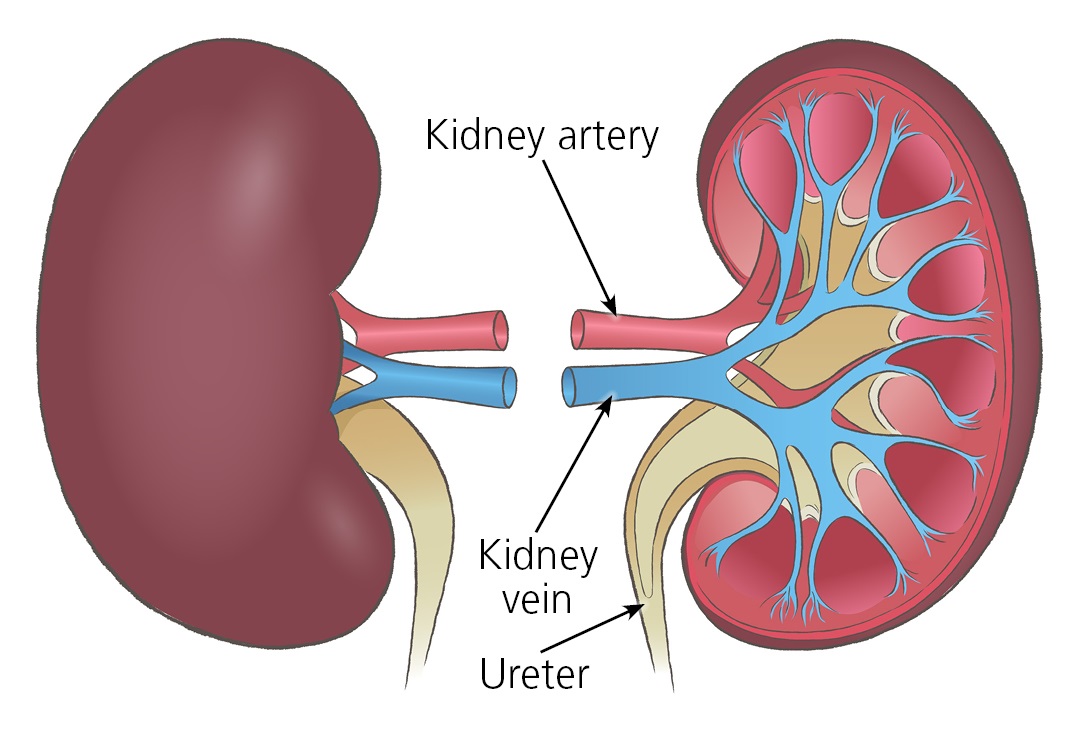Kidneys and kidney failure
What do kidneys do and what is kidney failure?
Key points
- Kidneys have five main jobs
- Kidney disease is common but for most people it is mild or moderate
- About 1 in 10 of people with kidney disease develop kidney failure
What do kidneys do?
Kidneys have five main jobs:
- Filter waste from your blood
- Balance the acid within your body
- Help control blood pressure
- Help make red blood cells
- Activate vitamin D for healthy bones
This image shows how the ureter (yellow tube), kidney vein (blue tube) and kidney artery (red tube) connect to a pair of kidneys.

What is kidney failure?
Kidney disease is common but for most people it is mild or moderate.
About 1 in 10 people with kidney disease develop kidney failure. This is when your kidneys no longer work well enough to keep you healthy, and you need dialysis or a kidney transplant to stay alive.
Kidney disease stages
Stage 1 - early signs of damage shown on tests. 90% kidney function
Stage 2 - mild. 60-90% kidney function
Stage 3 - moderate. 30-60% kidney function
Stage 4 - severe. 15-30% kidney function
Stage 5 - kidney failure. Less than 15% kidney function. Dialysis or a kidney transplant may be needed
Discuss your options with your doctor
Speak to your kidney team to find out what treatment is best for you.


